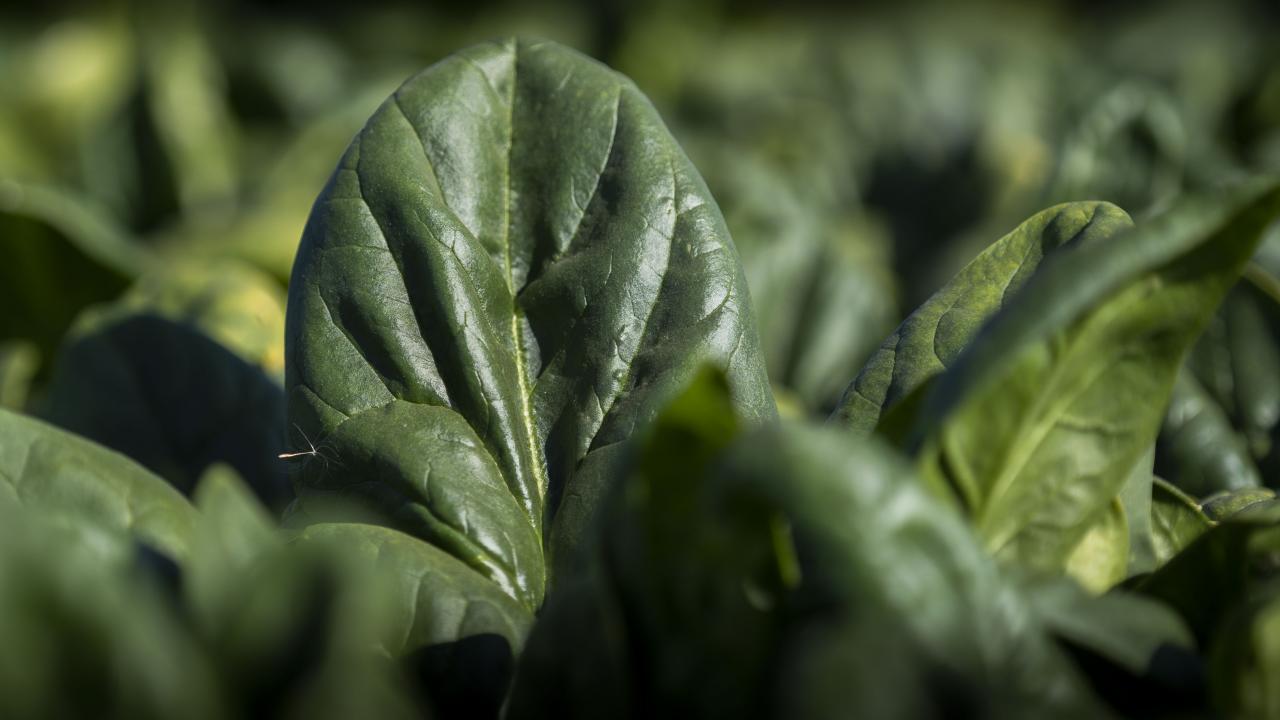
New study will help ensure food safety of leafy green vegetables
A new study funded by the U.S. Food and Drug Administration (FDA) will help researchers at the University of California, Davis, and its partners improve food safety through enhanced understanding of pathogens in the environment that may cause foodborne illness outbreaks.
This initiative is a partnership that includes the California Department of Food and Agriculture (CDFA), UC Davis, Western Center for Food Safety (WCFS), and agricultural stakeholders in the Central Coast of California. (WCFS is made up of UC Davis scientists in the Department of Food Science and Technology and School of Veterinary Medicine.)
“I am excited to be part of this unique opportunity that leverages the resources and expertise of FDA scientists with the extensive produce food safety experience of UC Davis researchers and the practical ‘boots on the ground’ insights of the California agriculture industry and the California Department of Food and Agriculture,” said Linda J. Harris, a specialist in Cooperative Extension and chair of the Department of Food Science and Technology.
The launch of this study follows a series of E. coli O157:H7 outbreaks in recent years linked to California’s lettuce production regions, particularly the most recent three outbreaks in the fall of 2019, which collectively resulted in 188 people falling ill.
In response, FDA launched an investigation, the findings of which are outlined in a report released in May 2020. The FDA also published a Leafy Green STEC Action Plan to address issues associated with leafy green Shiga toxin-producing E.coli (STEC) contamination. This new longitudinal study is included in the action plan, as well as the continuation of a similar study being conducting in the Yuma, Arizona growing region.
A key component of the Leafy Green STEC Action Plan is the need to address knowledge gaps in order to advance prevention. The multiyear study will examine how pathogens survive, move through the environment and possibly contaminate produce, through work with water quality, food safety, and agricultural experts from the Western Center for Food Safety, representatives from various agriculture industries, and members of the leafy greens industry.
Research teams will be collecting and examining samples from the environment, including adjacent land, well and surface waters, soil inputs that include compost, and dust. The team will also be collecting animal fecal samples to assess the potential impact that domesticated cattle and wildlife may have on the produce-growing environment.
The California Central Coast region grows a significant portion of the nation’s leafy greens. The findings from this study will contribute new knowledge on how various environmental factors may influence bacterial persistence and distribution in this region, and how those factors may impact the risk of leafy greens becoming contaminated. Results from this collaboration will lead to improved practices to prevent or mitigate food safety risks, and ultimately enhance the safety of leafy greens grown in California.